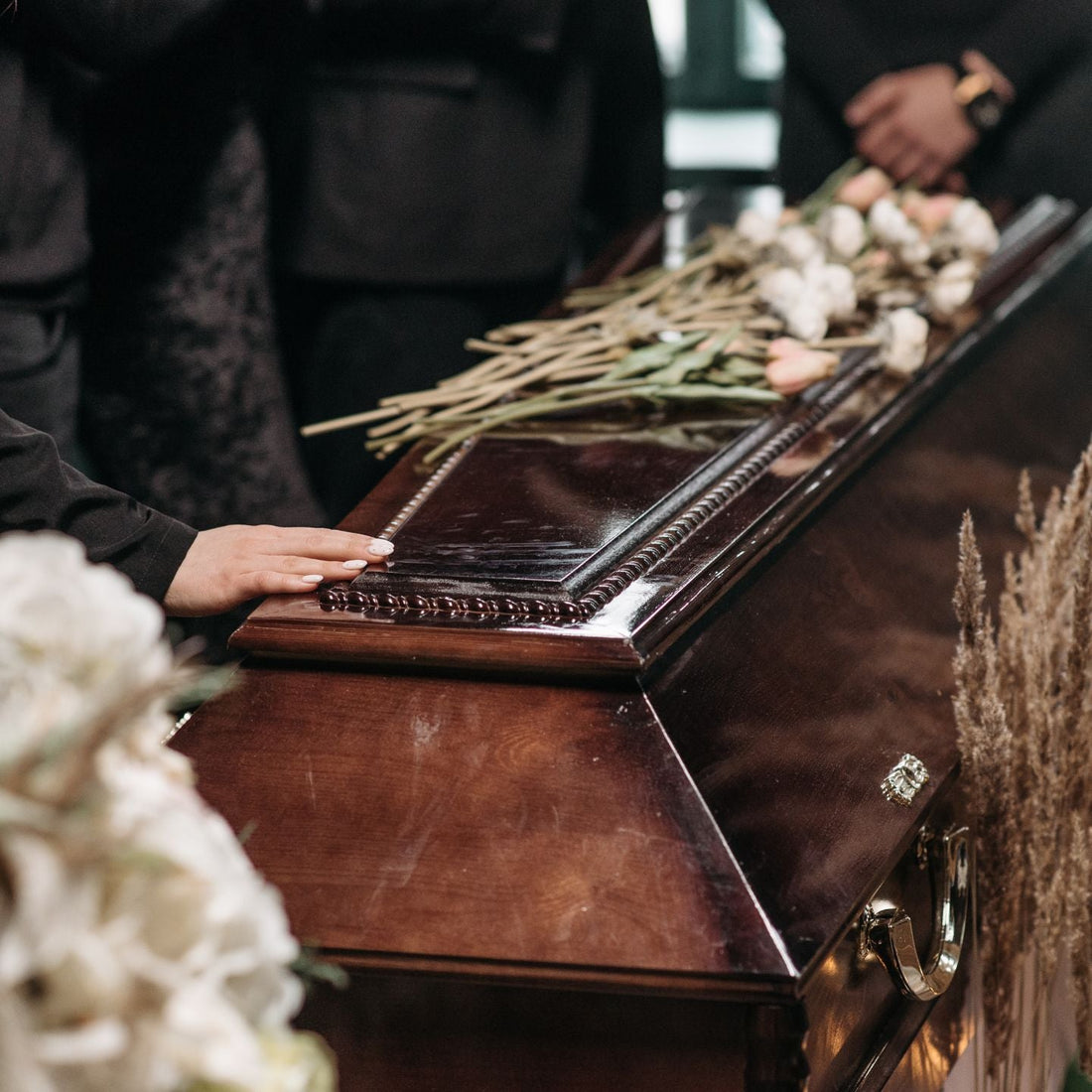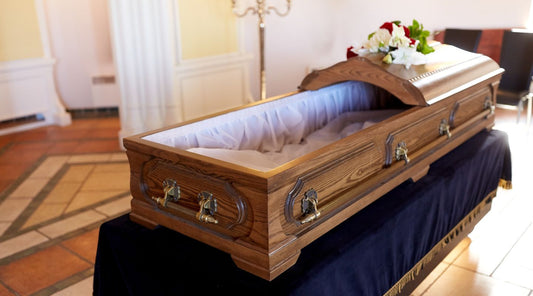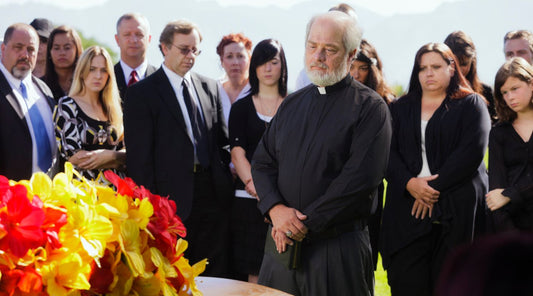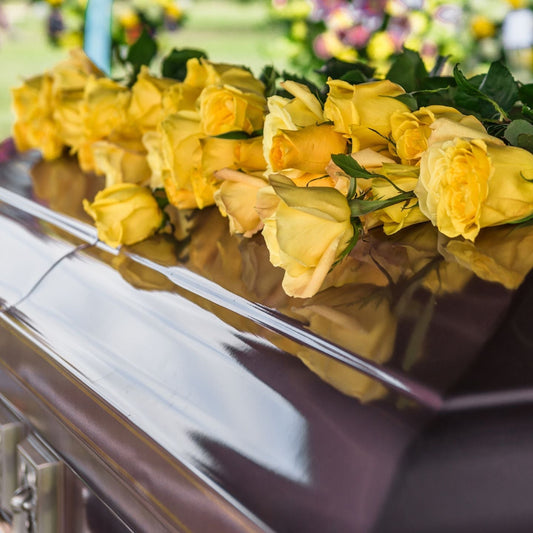
10 Things You Didn't Know About Planning a Funeral
Planning a funeral can be an emotionally charged and overwhelming experience, often made even more difficult during a time of grief. Whether you’re pre-planning your service or assisting a loved one, there’s much to consider beyond just choosing a casket and setting a date. Many families find themselves unaware of the intricacies involved in funeral planning until the need arises, and it’s easy to feel lost amid the emotional strain. However, knowing what to expect and understanding the various options available can help reduce stress and ensure that the ceremony truly reflects the life of the individual.
In this blog post, we’ll uncover 10 things you might not know about planning a funeral, shedding light on the often-overlooked aspects of the process. From the wide variety of casket options to legal matters and cost-saving tips, we’ll provide you with the information necessary to navigate the complexities of funeral planning. With this knowledge, you’ll be better equipped to create a meaningful and personalized tribute to your loved one while also managing the financial and logistical aspects with confidence.
1. Funeral Costs Can Vary

Many people don’t realize how much a funeral can cost until they start planning. Funeral prices can vary widely depending on what you choose, where you are, and what services you need. On average, a traditional funeral can cost anywhere between $7,000 and $12,000. However, this can go up if you choose higher-end options like a more expensive casket or additional services.
If you’re worried about the cost, there are options like pre-planning or different funeral packages that allow you to control expenses. Many funeral homes offer customizable packages that can fit various budgets, giving you the flexibility to make the service as simple or elaborate as you want.
2. Pre-planning a Funeral Can Help Reduce Stress

One of the best ways to make funeral planning easier is to pre-plan your funeral in advance. Pre-planning means you make your funeral arrangements ahead of time so your loved ones won’t have to make decisions during a difficult time. This can also help make sure that your wishes are carried out exactly as you want them.
You can pre-arrange everything from the type of funeral to your burial or cremation preferences. You can even write down details like songs or readings you want at the service. Pre-planning makes everything clearer and less stressful for your family.
3. You Don’t Have to Buy a Casket from the Funeral Home
Many people don’t realize that funeral homes are required by law to let you bring your casket if you want. While funeral homes often sell caskets, they can’t force you to buy one from them. You have the option to shop around for a more affordable or personalized casket.
This is where websites like Trusted Caskets can help. You can find a variety of caskets online, often at lower prices than what a funeral home might charge. Some people even choose custom caskets that reflect their loved one’s personality or interests, making the funeral feel even more personal.
4. Cremation Is Often Cheaper Than Burial

If you’re looking for a more affordable option, cremation is often cheaper than a traditional burial. A typical cremation can cost between $2,000 and $5,000, depending on the services included. This cost is usually much lower than a full burial, which may include costs for embalming, a casket, a burial plot, and a headstone.
Cremation also offers more flexibility for memorial services. You can choose to have a memorial service later, keep the ashes in a meaningful urn, or even scatter them in a location that had special meaning to your loved one. Many people find cremation to be a simpler and more cost-effective way to handle final arrangements.
5. Green Burials Are Becoming More Popular
A green or natural burial is an eco-friendly option that’s gaining popularity. This type of burial involves minimal environmental impact, using biodegradable caskets or shrouds and avoiding chemicals like embalming fluids. Many people choose green burials because they want to reduce their environmental footprint.
Green burials can also be more affordable than traditional burials, as they don’t require expensive embalming or a high-end casket. These burials typically take place in designated areas that focus on conservation and sustainability.
6. You Can Personalize the Funeral to Reflect the Person’s Life
A funeral isn’t just a time to mourn; it’s also a chance to celebrate the life of the person who has passed. Many people don’t realize how much they can personalize a funeral. You can do much more than just pick out flowers and music. You can add special touches to reflect the deceased’s life and personality.
For example, you can set up a memory table with photos and mementos, share meaningful stories, or play the deceased’s favorite music. Some families even choose to include special rituals from their culture or religion to make the ceremony more personal. A customized funeral service helps make the day more meaningful for both the family and the guests.
7. Funerals Don’t Have to Be Formal
While traditional funerals are often formal and somber, more and more people are opting for relaxed, informal services. A celebration of life service focuses less on formality and more on honoring the person who passed away.
Some people choose to hold the service in a non-traditional setting, like a park, a beach, or even at home. You can also ask guests to wear casual clothing instead of traditional funeral attire. This shift toward more casual and personalized services allows families to honor their loved ones in a way that feels comfortable for everyone involved.
8. There Are Legal Documents You’ll Need to Handle
Funeral planning doesn’t just involve choosing a casket and flowers. There are legal matters you’ll need to take care of as well. This includes things like getting a death certificate, handling the deceased’s estate, and making sure their final wishes are followed.
If the person who passed away left behind a will, it will outline their preferences for their funeral and the distribution of their belongings. If there’s no will, the next of kin will typically be responsible for making decisions. It’s a good idea to work with a funeral director or lawyer to make sure everything is in order.
9. There Are Many Ways to Memorialize a Loved One
After the funeral, many families look for ways to keep their loved one’s memory alive. There are lots of options for memorializing someone, including gravestones, memorial jewelry, or even planting a tree in their honor.
If the person was cremated, you can keep their ashes in a special urn, which can even be customized with engravings or other personal touches. Some people also create online memorial pages or tribute videos, where family and friends can share memories and photos.
10. Funeral Planning Can Be Done in Stages
It’s not necessary to plan everything at once. Many families find it helpful to approach funeral planning in stages. Funeral directors often allow you to make decisions bit by bit. For example, you may first choose the casket or urn and then later decide on details like the service location and the music.
This approach can take some of the pressure off, especially if the funeral is scheduled for a later date. It gives you more time to consider options carefully and ensure everything is planned in the way that best honors your loved one.
Conclusion
Planning a funeral can feel like a daunting task, but it doesn’t have to be. By understanding the different options available and approaching the process step by step, you can make informed choices that are both meaningful and manageable. Whether you’re pre-planning for yourself or helping with the arrangements for a loved one, being informed can ease the process and help you focus on what truly matters.
At Trusted Caskets, we offer a wide selection of caskets, urns, and funeral services to meet your needs. If you’re looking for help or want to explore your options, feel free to browse our collection or get in touch with one of our experts. We’re here to guide you through this difficult time with care, understanding, and support.


